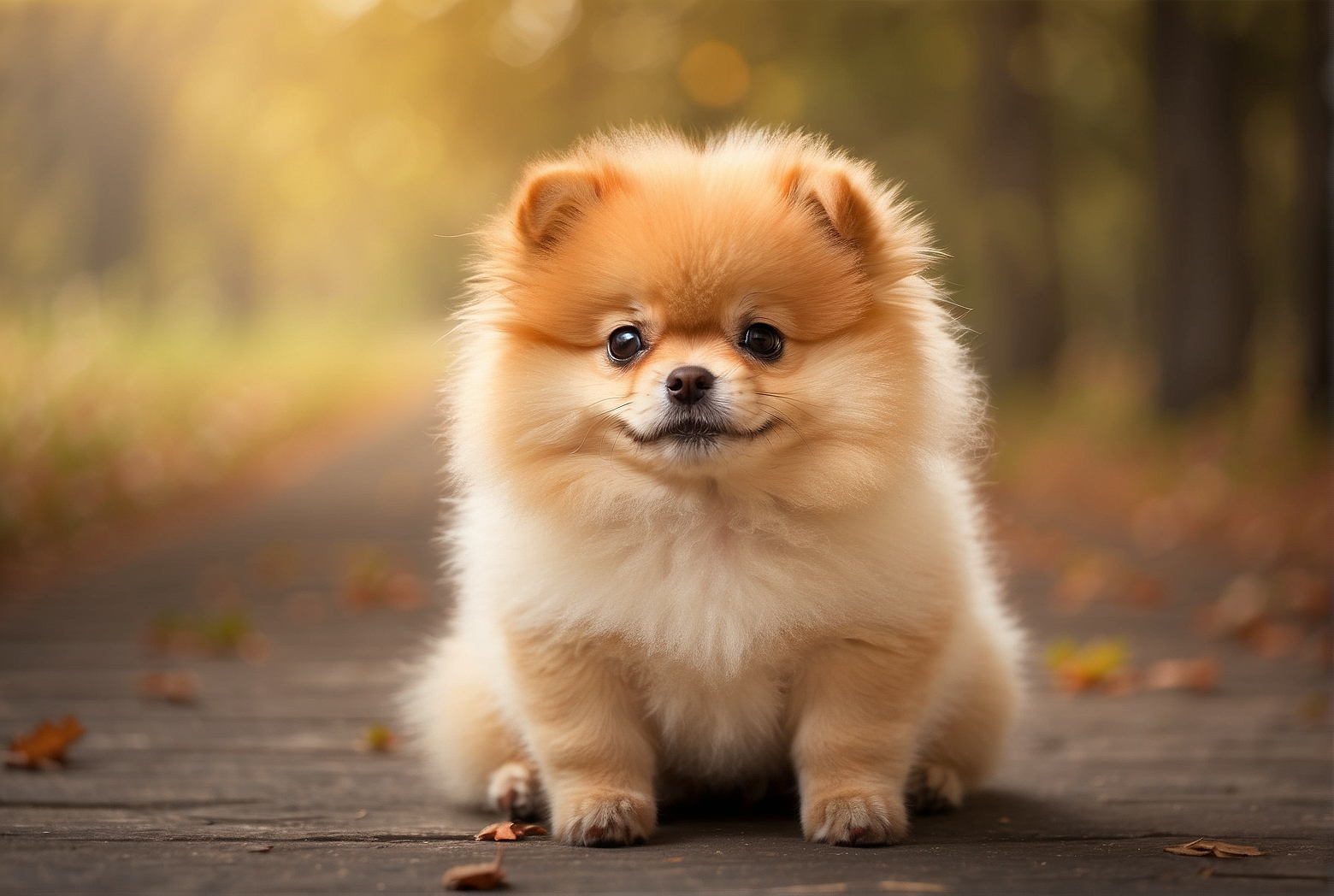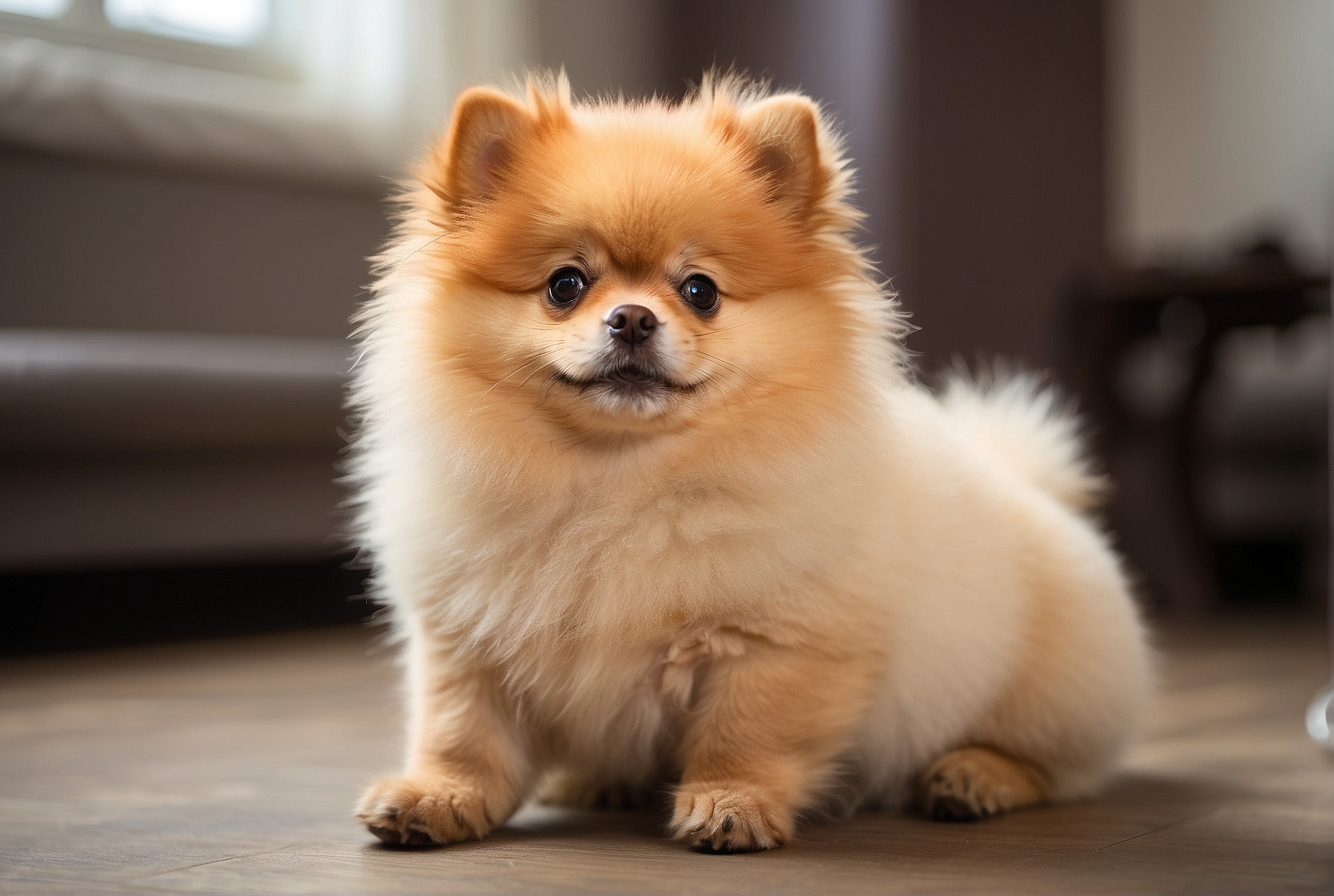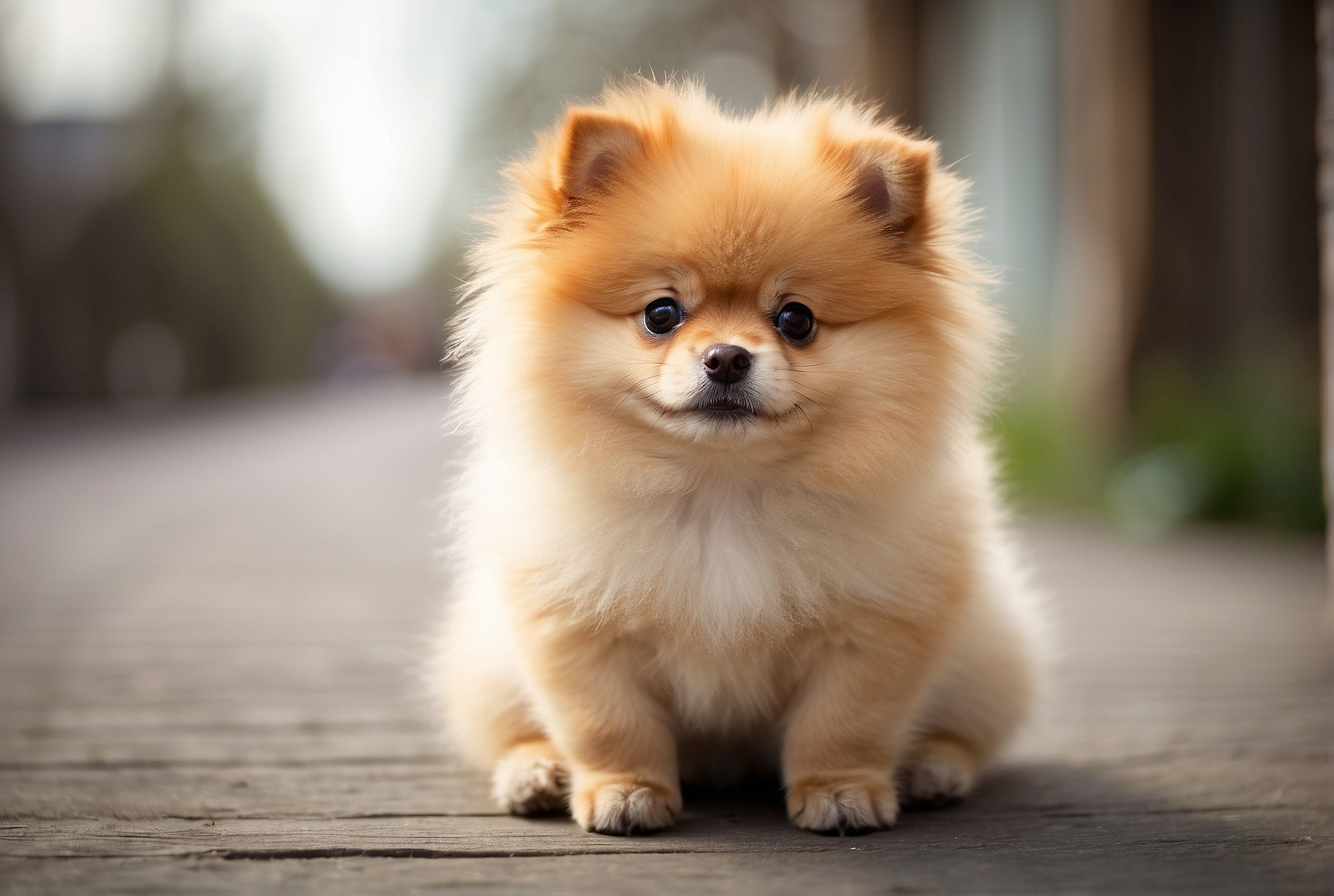If you’re considering becoming a first-time Pomeranian owner, you’re in for a delightful and rewarding experience. These fluffy and affectionate balls of fur make wonderful companions. However, like any pet, they require special care and attention. In this article, you’ll find valuable tips and advice to help you navigate the journey of being a Pomeranian owner, from choosing the right breeders to providing proper grooming and training. With these tips, you’ll be well-equipped to ensure a happy and healthy life for your new Pomeranian friend.
Understanding the Pomeranian Breed
Pomeranians are a small breed of dog known for their lively and outgoing personality. These pint-sized pups are the perfect companion for anyone looking for a loyal and affectionate pet. In this article, we will explore the characteristics, history, and temperament of Pomeranians, as well as provide helpful tips for first-time Pomeranian owners.
Characteristics of Pomeranians
Pomeranians are small dogs, typically weighing between three and seven pounds. Despite their small size, they are known for their intelligence and boldness. With a soft, fluffy double coat, Pomeranians come in a variety of colors, including orange, black, white, and cream. Their expressive eyes and perky ears add to their adorable appearance.
History of the Pomeranian Breed
Pomeranians have a rich history that dates back several centuries. Originally bred as large sled dogs in the Arctic region, they were favorites among European royals in the 18th century. Queen Victoria of England played a significant role in popularizing Pomeranians as companion dogs and breeding them down to their current small size.
Temperament of Pomeranians
Pomeranians are known for their friendly and extroverted nature. They are highly social and form strong bonds with their owners. Despite their small stature, Pomeranians often possess a courageous and independent spirit. They are generally good with children and other pets, but early socialization is crucial to ensure proper behavior.
Preparing for a Pomeranian
Before bringing home a Pomeranian, it’s important to create a safe and welcoming environment for your new furry friend. This includes securing your home, removing any potential hazards, and setting up a comfortable space for your Pomeranian to relax and sleep.

Gathering essential supplies is also crucial. Some of the essential items you’ll need for your Pomeranian include a cozy bed, food and water bowls, high-quality dog food, durable toys for mental stimulation, a leash and collar or harness for walks, and grooming supplies.
When it comes to finding a reputable breeder or rescue center, research is key. Look for breeders who prioritize the health and well-being of their puppies, perform health screenings on their breeding dogs, and provide proper care and socialization for their litters. Consider adopting from a rescue center to give a deserving Pomeranian a second chance at a loving home.
Feeding and Nutrition
Choosing the right dog food is essential to keep your Pomeranian healthy and happy. Look for a high-quality, breed-specific dog food that meets their nutritional needs. Pomeranians have specific dietary requirements, so it’s crucial to select a food that provides adequate protein, healthy fats, and essential vitamins and minerals.
Establishing a feeding schedule and practicing portion control is important in maintaining a healthy weight for your Pomeranian. Overfeeding can lead to obesity, which can increase the risk of health issues such as joint problems and heart disease. Consult with your veterinarian to determine the appropriate portion sizes for your Pomeranian based on their age, weight, and activity level.
It’s also important to understand any dietary restrictions your Pomeranian may have. Some dogs have food allergies or sensitivities, so it’s important to read ingredient labels and avoid feeding them any food that may trigger an adverse reaction. If you suspect your Pomeranian has a food allergy, consult with your veterinarian for guidance on an appropriate diet.
Health and Veterinary Care
Finding a trusted veterinarian is essential for the overall well-being of your Pomeranian. Regular veterinary check-ups are crucial to monitor your dog’s health, administer vaccinations, and prevent potential health problems. Seek recommendations from fellow dog owners or do thorough research to find a veterinarian who specializes in small breed dogs and has experience with Pomeranians.

Vaccinations and preventive care play a vital role in maintaining your Pomeranian’s health. Ensure that your dog receives all necessary vaccinations to protect them from diseases such as rabies, distemper, and parvovirus. Your veterinarian will provide you with a vaccination schedule tailored to your Pomeranian’s specific needs.
Pomeranians are prone to certain health issues, including dental problems, patellar luxation, and tracheal collapse. It’s important to be aware of these potential issues and take proactive measures to prevent them. Regular dental care, including brushing your Pomeranian’s teeth and providing appropriate chew toys, can help maintain good oral hygiene. Monitor your dog’s weight and avoid excessive jumping or strenuous activity to reduce the risk of joint problems.
Exercise and Mental Stimulation
While Pomeranians are small in size, they are energetic and require regular exercise. A daily walk or two, along with playtime in a securely fenced yard, can help burn off excess energy and keep your Pomeranian physically fit. Keep in mind that Pomeranians are susceptible to heat exhaustion, so avoid exercising them during the hottest parts of the day and provide plenty of water breaks.
In addition to physical exercise, it’s important to provide mental stimulation and enrichment for your Pomeranian. Interactive toys, puzzle feeders, and obedience training sessions can help keep their minds sharp and prevent boredom. Pomeranians thrive on attention and love to learn, so incorporating training sessions into their daily routine can strengthen the bond between you and your furry friend.
Proper training and socialization are crucial for a well-behaved Pomeranian. Start training your Pomeranian from an early age, using positive reinforcement techniques such as treats and praise. Basic obedience commands, such as sit, stay, and come, are essential for ensuring your Pomeranian’s safety and well-being. Enroll in a puppy training class or work with a professional dog trainer to ensure your Pomeranian receives proper guidance and socialization with other dogs and people.
Grooming and Coat Maintenance
Pomeranians have a thick, double coat that requires regular grooming to keep it clean and tangle-free. Daily brushing is recommended to prevent matting and to remove loose hair. Pay particular attention to areas prone to matting, such as behind the ears and at the base of the tail. Using a slicker brush or comb, gently work through the coat, starting from the roots to the tips.
Bathing your Pomeranian should be done on an as-needed basis, typically every four to six weeks. Use a gentle, dog-specific shampoo and conditioner to avoid drying out their skin. Take care to thoroughly rinse out all shampoo and conditioner to prevent skin irritation. After bathing, gently towel dry your Pomeranian and ensure they are kept warm until fully dry.
Professional grooming is also recommended every four to six weeks to trim your Pomeranian’s nails, clean their ears, and maintain general coat hygiene. A groomer with experience handling Pomeranians will have the expertise to ensure your dog’s grooming needs are met.
Housebreaking and Potty Training
Housebreaking and potty training a Pomeranian requires consistency and patience. Establishing a routine is key, taking your dog outside first thing in the morning, after meals, and before bedtime. Use positive reinforcement techniques, such as treats and praise, to reward your Pomeranian for eliminating in the appropriate spot. Avoid punishing or scolding your dog for accidents, as this can cause anxiety and hinder the training process.
If accidents do happen, thoroughly clean the area with enzymatic cleansers specifically designed to eliminate odors. These products break down the enzymes in urine, preventing your Pomeranian from being attracted back to the same spot. As your Pomeranian becomes more reliable with their potty training, gradually extend the time between bathroom breaks, and always provide access to a designated elimination area.
Behavior and Obedience Training
Proper behavior and obedience training are important for a well-adjusted and happy Pomeranian. Basic commands, such as sit, stay, and come, should be taught from an early age using positive reinforcement techniques. Pomeranians respond well to rewards and praise, so be sure to shower them with affection when they display desired behaviors.
Addressing behavior problems should be done with patience and understanding. Pomeranians can be prone to excessive barking, separation anxiety, and possessiveness. Consistency and positive reinforcement can help modify unwanted behaviors. Consult with a professional dog trainer or behaviorist if you’re struggling with specific behavior problems, as they can provide guidance tailored to your Pomeranian’s needs.
Traveling and Transportation
Traveling with your Pomeranian requires careful planning and consideration for their safety and well-being. When traveling by car, it’s important to secure your Pomeranian using a pet carrier or a harness specifically designed for small dogs. This ensures that they are safe and unable to roam freely, which could lead to distraction or injury.
If traveling by air, check with the airline for their specific requirements regarding pet travel. Some airlines allow small dogs, including Pomeranians, to travel in the cabin as long as they are in an airline-approved carrier. It’s important to acclimate your Pomeranian to the carrier before the trip to reduce stress and anxiety.
Before any trip, ensure you have all the necessary supplies, including food, water, and comforting items such as their favorite blanket or toy. Familiarize yourself with the surroundings at your destination, including pet-friendly accommodations and nearby veterinary clinics in case of emergencies.
Socializing and Interacting with Other Dogs
Socializing your Pomeranian from a young age is essential for their development and well-being. Introducing your Pomeranian to other dogs in a controlled and positive environment can help them become comfortable and confident around other animals. Supervised playdates with well-behaved dogs can be beneficial in teaching your Pomeranian proper socialization skills.
When visiting a dog park, it’s important to observe proper dog park etiquette. Always supervise your Pomeranian and ensure they are comfortable and safe in the environment. Small dogs like Pomeranians can be at risk of injury if playing with larger, more boisterous dogs, so it’s important to monitor their interactions and intervene if necessary.
Avoiding aggressive behavior is important for the safety of both your Pomeranian and other dogs. If your Pomeranian displays signs of aggression, seek guidance from a professional dog trainer or behaviorist to address the underlying causes and implement appropriate training techniques.
By understanding the characteristics, history, and temperament of Pomeranians and following the tips provided in this article, you’ll be well-prepared to welcome a Pomeranian into your life. Remember, Pomeranians thrive on love, attention, and positive reinforcement, so shower your furry friend with affection and enjoy the companionship of this delightful breed.
